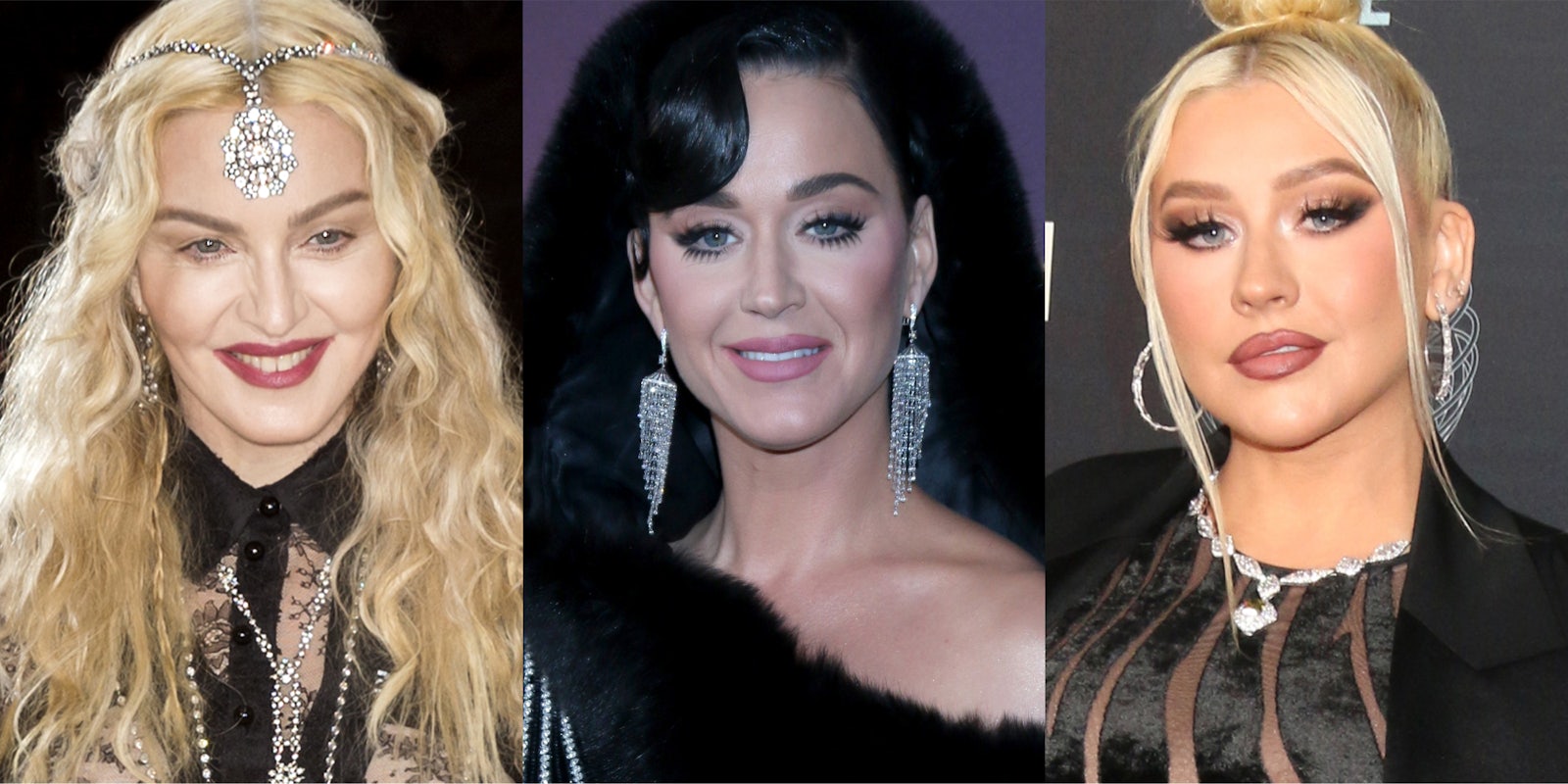As is often the case with official-sounding “best of” lists, you have to wonder if Rolling Stone‘s “Most inspirational LGBTQ songs of all time” ranking was designed to attract hate-clicks. If so, it definitely succeeded.
Sneaking in during the last few days of Pride Month, this 50-song list is dominated by straight artists. It’s currently being put through the wringer on Twitter, raising questions about what counts as an “inspirational LGBTQ song,” versus a track that happens to be popular among queer people.
For instance, does it really make sense to give the second and third rankings to Christina Aguilera’s “Beautiful” and “Firework” by Katy Perry? A song so generically “empowering” that it was Hillary Clinton’s presidential campaign anthem?
While the list does include plenty of tracks by LGBTQ+ artists (David Bowie, Hayley Kiyoko, Sam Smith, Ethel Cain, Lady Gaga at #1), it still skews toward straight female pop vocalists like Taylor Swift, Beyoncé, Britney Spears, Katy Perry, and Sara Bareilles.
There are two Kacey Musgraves songs (#4 and #35 on the list) but nothing by Janelle Monae or trailblazing lesbian singer-songwriter Melissa Etheridge, who tweeted, “Dear @RollingStone …was it something I said?”
Basically, this list has a rather dated “straight allies to gay people” vibe, exemplified by the appearance at #31 of 2012 normie hit “Same Love” by Macklemore, Ryan Lewis and Mary Lambert.
While popular at the time, this track now has a cringy reputation due to its focus on Macklemore’s perspective as a straight guy—parodied by Andy Samberg in the movie Popstar: Never Stop Never Stopping (“Equal Rights (Not Gay)”), and by the HBO comedy series The Other Two (“My Brother is Gay and That’s Okay!). The idea of this being an inspirational queer anthem in 2023 is pretty laughable.
Out magazine has already published a response list featuring tracks like “Pynk” by Janelle Monae and “Montero” by Lil Nas X, asking “Why do “inspirational LGBTQ+ songs” have to just be saccharine, Hallmark music?” Meanwhile, queer Twitter users continue to dunk on Rolling Stone—alongside K-pop stans demanding to know why their favs weren’t on the list. Of course.



